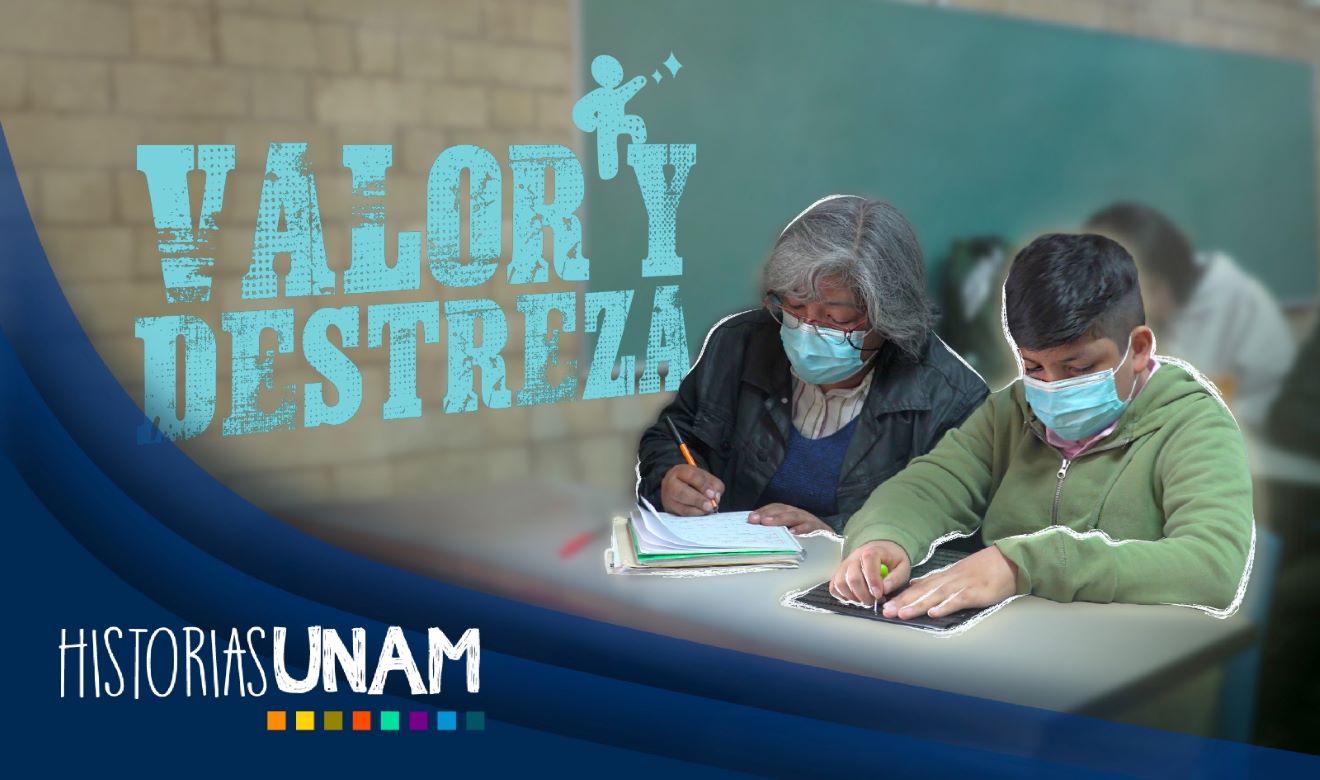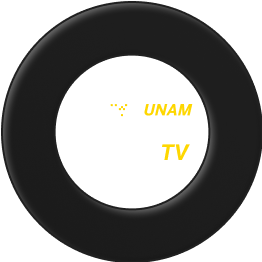aime Humberto Urrutia Fucugauchi, investigador del Instituto de Geofísica (IGf) de la UNAM, fue nombrado como miembro honorario de la Royal Astronomical Society (RAS, honorary fellowship in Geophysics), por su excepcional trabajo de investigación en esta área.
La RAS, fundada en 1820, tiene más de tres mil 900 miembros entre los más destacados científicos del mundo. Promueve el estudio de la astronomía, de la ciencia del Sistema Solar y de la geofísica, entre otras disciplinas.
El honorary fellowship es una distinción que entrega esa sociedad a científicos extranjeros por su trascendente labor académica y de investigación, y por la edición de publicaciones científicas reconocidas a nivel mundial.
Urrutia Fucugauchi cursó la licenciatura en Ingeniería Geofísica en la Facultad de Ingeniería (FI) y la maestría en la Facultad de Ciencias (FC) de la UNAM, y obtuvo el doctorado en la Universidad de Newcastle upon Tyne, Inglaterra. Realizó una estancia posdoctoral en la Universidad de Michigan, Estados Unidos.
Es investigador titular C en el IGf y profesor en la FC, así como en varios programas de posgrado de esta casa de estudios. Tiene el nivel III del Sistema Nacional de Investigadores y es PRIDE D. Se desempeñó como director del Instituto de Geofísica de 1997-2005, y es miembro de la Junta de Gobierno de la UNAM.
Ha desarrollado estudios interdisciplinarios sobre el sistema Tierra, incluyendo enfoques de paleomagnetismo, tectónica, exploración geofísica, paleoclimas, cráteres de impacto y meteoritos. Realiza investigaciones sobre el cráter Chicxulub, meteoritos, extinción de organismos, además de origen y evolución del Sistema Solar. Sus contribuciones cimprenden análisis de efectos globales de impactos meteoríticos en el clima y sistemas de soporte de vida del planeta.
Cuenta con una amplia obra publicada (220 artículos en revistas internacionales, 12 volúmenes especiales, 60 capítulos en libros y memorias, 40 artículos sobre política científica y reportes) que han recibido más de tres mil 200 citas en la literatura. También ha contribuido a crear un conjunto de laboratorios especializados (v.gr. Paleomagnetismo y Geofísica Nuclear, Propiedades Magnéticas, Radiocarbono.
Sus investigaciones han recibido apoyo tanto de fuentes nacionales (Conacyt, DGAPA-UNAM, Fundación R.J. Zevada) como internacionales (National Science Foundation, NASA, UC-MEXUS, National Geographics, VW Scientific Foundation, National Research Council de Inglaterra, Ministerio de Educación Monbusho y Agencia de Cooperación Internacional del Japón, de la Comunidad Europea, Programa de Cooperación Francia-México, Instituto Panamericano de Geografía e Historia, International Continental Scientific Drilling Program ICDP, e Integrated Ocean Drilling Program IODP).
Su trabajo ha recibido diversos reconocimientos, como los premios Nacional de Ciencias y Artes (2009), Universidad Nacional (2007), Academia Mexicana de Ciencias (1991), Bárcena de la Unión Geofísica Mexicana (2010), El Potosí (2010), Noriega de la Organización de Estados Americanos (1992), Maldonado Koerdell de la Unión Geofísica Mexicana (1991).
También, la Cátedra Ezequiel Chávez del Colegio de Ciencias y Humanidades (1992) y el Premio Puebla (1988). Ha sido electo Fellow de TWAS Academy of Sciences for the Developing World (2004) y Geological Society of America (2010). Es miembro titular de la Academia Mexicana de Ciencias (2012).
RAS medals and awards honour leading astronomers and geophysicists
The Royal Astronomical Society is pleased to announce the 2018 winners of its awards, medals and prizes. Each year the RAS recognises significant achievement in the fields of astronomy and geophysics through these awards.
The announcements were made at the Ordinary Meeting of the society held on Friday 12 January 2018. The winners will be invited to collect their awards at the European Week of Astronomy and Space Science in Liverpool in April.
The Society’s highest honour is its Gold Medal, which can be awarded for any reason but usually recognises lifetime achievement. Past winners include Albert Einstein, Edwin Hubble, Arthur Eddington and Stephen Hawking. It was first awarded in 1824; since 1964 two have been awarded each year: one for astronomy, and one for geophysics.
This year the winners of the Gold Medals are Professor James Hough, emeritus holder of the Kelvin Chair of Natural Philosophy at the University of Glasgow, and Robert White, Professor of Geophysics, Geodynamics and Tectonics at the University of Cambridge.
Professor Hough is awarded the Gold Medal of the Royal Astronomical Society for his seminal contribution to the science of gravitational waves.
Gold Medal – James Hough
Professor James Hough, winner of the Gold Medal in astronomy.
These disturbances in the curvature of space-time were predicted by Albert Einstein in 1916. Gravitational waves were first detected a century later by the Advanced Laser Interferometer Gravitational Wave Observatory (LIGO), emanating from the merger of two massive black holes. This discovery gave astronomers an entirely new tool for studying the universe.
Over four decades, Professor Hough developed many of the key technologies and experimental techniques that made this first direct detection of gravitational waves possible. The detection required extremely precise measurements of tiny signals embedded in a very noisy environment. This was achieved using laser interferometers capable of measuring shifts of less than a thousandth of the diameter of a proton (one of the particles that makes up the nucleus of an atom), or about a million million millionth of a metre across. Professor Hough, working as part of the UK/German GEO600 team, developed sophisticated mirror suspensions that enabled LIGO to reach the sensitivity required for the discovery.
He is the author of more than 300 journal papers and, throughout his career, has combined academic research and teaching with the promotion of science and education in the United Kingdom and Europe.
Professor White is awarded the Gold Medal for a lifetime of distinguished achievement in solid Earth geophysics.
G Gold Award – England thumbnail
Professor Robert White, winner of the Gold Medal in geophysics.
He has made fundamental, transformative contributions in five different areas of Earth science: mid-ocean ridges, mantle plumes and flood basalts, continental rifting, convergent margins, and dyke injection, seismicity and volcanism.
Alongside his work in Cambridge, since 2010 he has also been an adjunct professor at the University of Iceland, where he studies volcanic rift processes and maps movement of magma beneath the surface. He has trained more than 50 students and post-doctoral researchers, many of whom have taken up senior faculty positions in academia and industry.
Professor White’s early research career was in marine geophysics, where his work on magmatism associated with the early stages of rifting is probably the best known, most influential and most cited in his career so far. More recently, he has worked extensively and fruitfully in Iceland on the elevated Mid-Ocean Ridge where, in 2014-15, his group used an array of 75 broad-band seismometers to study a 46-kilometre-long dyke culminating in a surface eruption. His 250 peer reviewed publications on geodynamics and geophysics have been cited more than 5,500 times and are a testament to the huge impact he has had on our understanding of the solid Earth.
Professor John Zarnecki, President of the Royal Astronomical Society, said:
“It is an enormous pleasure to congratulate the 2018 cohort of winners of our awards and medals. Over nearly two centuries, the Society has recognised the very best men and women in astronomy, space science and geophysics, in the UK and around the world, and this year is no exception.
Winners this year are from across the gamut of our sciences, including developing instrumentation for the first detection of gravitational waves, studying the distant universe, making a success of the Rosetta mission and understanding volcanic activity in Iceland.
The achievements of all of them are incredibly impressive, and I am delighted to see their work recognised in this way.”
The Society also awards more than 20 other medals, awards, lectures and honorary fellowships; for more information on the awards and the achievements of the winners, see the full citations linked from the winners’ names below.
List of winners
Awards are designated ‘A’ for astronomy (including astrophysics, cosmology etc.) and ‘G’ for geophysics (including solar physics, planetary science, solar-terrestrial physics etc.). Some awards are given in both fields. For images see the Awards Picture Gallery.
Gold Medal
Prof James Hough (A) (University of Glasgow)
Prof Robert White (G) (University of Cambridge)
Eddington Medal (A)
Prof Claudia Maraston (University of Portsmouth)
Chapman Medal (G)
Prof Emma Bunce (University of Leicester)
Price Medal (G)
Prof Stuart Crampin (University of Edinburgh)
Herschel Medal (A)
Prof Tom Marsh (University of Warwick)
Jackson-Gwilt Medal (A)
Prof Wayne Holland (UK ATC, University of Edinburgh)
Fowler Award
Dr Amelie Saintonge (A) (University College London)
Dr David Jess (G) (Queen’s University Belfast)
Winton Award
Dr Rebecca Bowler (A) (University of Oxford)
Dr Kerri Donaldson Hanna (G) (University of Oxford)
Group Achievement Award
The Planck satellite team (A)
The Centre for Observation and Modelling of Earthquakes, Volcanoes and Tectonics (COMET) (G)
RAS Service Award
Prof Mark Cropper (A) (Mullard Space Science Laboratory, University College London)
Dr Matthew Taylor (G) (European Space Agency)
Annie Maunder Medal
Dr Helen Mason OBE (University of Cambridge)
Patrick Moore Medal
Miss Jenny Lister (St George the Martyr C.E. Primary School, London)
Honorary Fellowship of the RAS
Prof Pascale Ehrenfreund (A) (German Aerospace Center DLR)
Prof Jaime Urrutia-Fucugauchi (G) (Universidad Nacional Autonoma de Mexico)
‘Named’ lectures to be delivered at a meeting of the Society:
George Darwin Lecturer (A)
Prof Stephen Smartt (Queen’s University Belfast)
Gerald Whitrow Lecturer (A)
Lord Rees of Ludlow (University of Cambridge)
Harold Jeffreys Lecturer (G)
Dr Alessandro Morbidelli (Observatoire de la Cote d’Azur)
James Dungey Lecturer (G)
Prof James Wild (University of Lancaster)
Media contacts
Dr Robert Massey
Royal Astronomical Society
London
United Kingdom
Tel: +44 (0)20 7292 3979
Mob: +44 (0)7802 877699
rm@ras.org.uk
Dr Morgan Hollis
Royal Astronomical Society
London
United Kingdom
Tel: +44 (0)20 7292 3977
Mob: +44 (0)7802 877700
mh@ras.org.uk
Notes for editors
The Royal Astronomical Society (RAS), founded in 1820, encourages and promotes the study of astronomy, solar-system science, geophysics and closely related branches of science. The RAS organizes scientific meetings, publishes international research and review journals, recognizes outstanding achievements by the award of medals and prizes, maintains an extensive library, supports education through grants and outreach activities and represents UK astronomy nationally and internationally. Its more than 3900 members (Fellows), a third based overseas, include scientific researchers in universities, observatories and laboratories as well as historians of astronomy and others.










